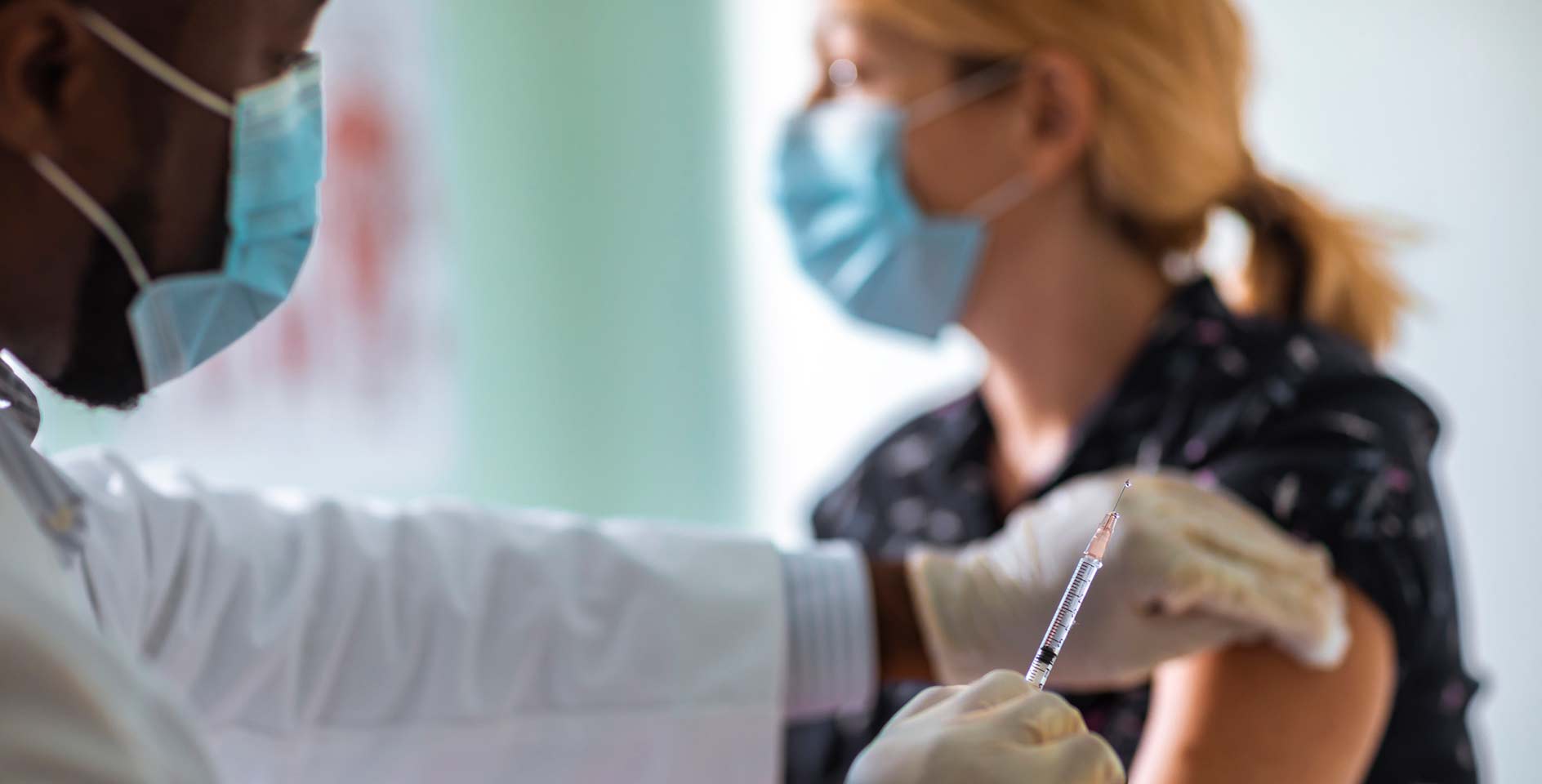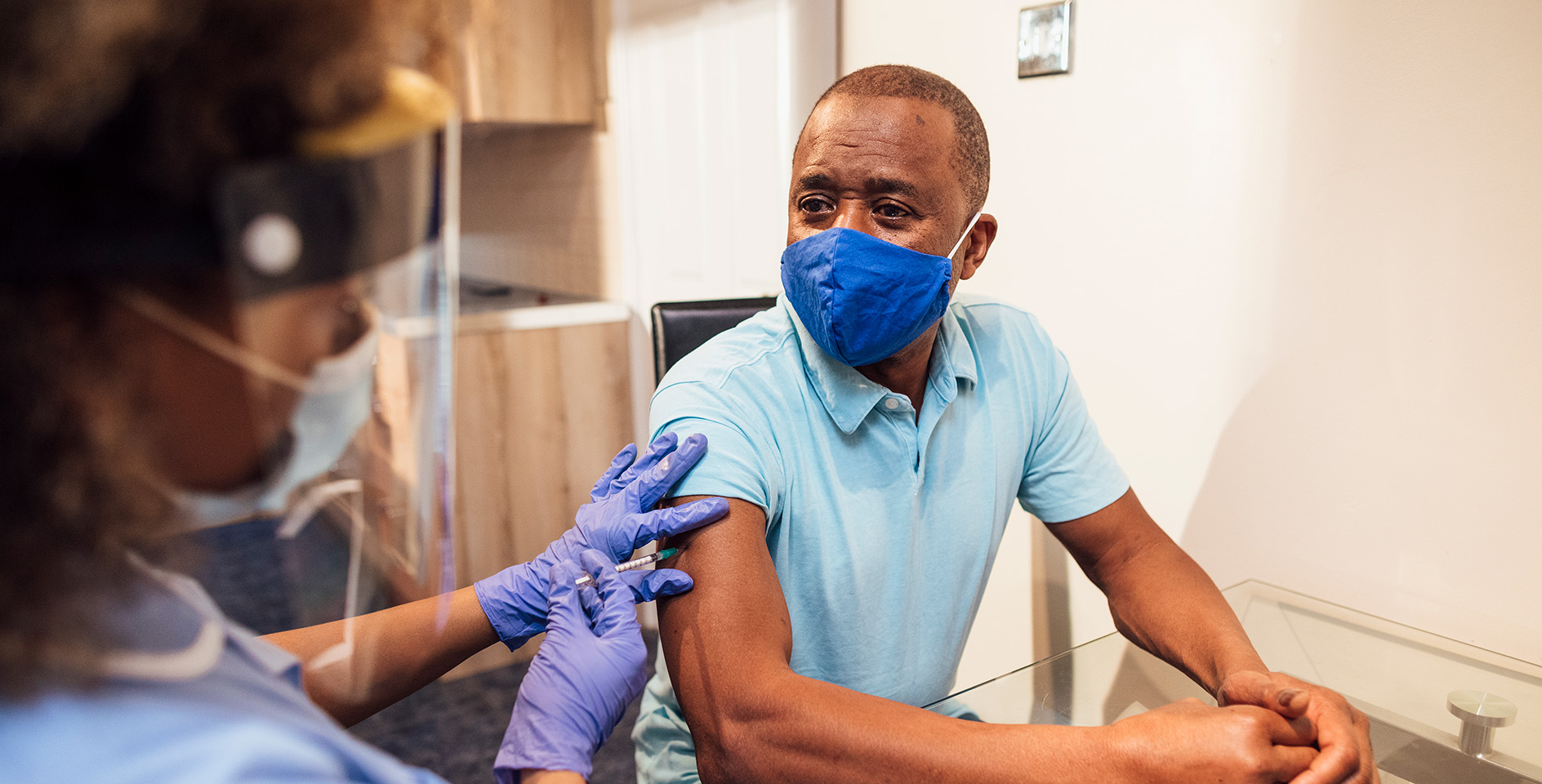The discussion of whether or not parents should vaccinate their children has been going on in some circles for years, but recent outbreaks of vaccine-preventable diseases in the United States have brought the conversation to a fever pitch. As Ross Douthat has recognized, vaccine skepticism occurs on a spectrum and has a wide range of motivating factors. When faced with the various questions that arise from so many different perspectives, the vaccine conversation sometimes sounds more like a cacophony. In the midst of the confusion, Christians should lead the way as those who wisely weigh the evidence and act accordingly for the good of those around them.
Vaccines Are Safe and Effective
When it comes to the complex milieu of questions surrounding vaccination, the least complicated issue is the science behind why they are recommended. The data overwhelmingly demonstrate that vaccines are safe and effective. Simply put, vaccines are the greatest public health achievement in human history. At the turn of the 20th Century, infectious diseases represented the greatest threat to life. Nearly one out of every six children died before the age of five due to an infectious disease and, of those who survived, many more experienced reduced quality of life due to long-term sequelae of infections. In the last century alone, it is estimated that vaccines saved 300 million lives—nearly double the number of lives lost in all wars combined during the same period of time.
To highlight the effect of vaccination in reducing the burden of specific infections, one has only to look at the dramatic decrease in the number of vaccine-preventable diseases after implementation of routine vaccination practices. Vaccination has resulted in the worldwide eradication of smallpox, the elimination of poliomyelitis in the Americas, and a 93-99% reduction in reported cases of chickenpox, measles, mumps, rubella, rotavirus, pneumococcus, Haemophilus influenzae type b, pertussis, tetanus, and diphtheria in the US. It is important to note that these infections are not inconsequential childhood diseases—reduction in the incidence of these diseases results in thousands of live saved per year in the US.
In addition to being extremely effective at preventing infectious diseases and saving lives, vaccines are also safe. No, that does not mean they are completely without risk, but no medication is. The fact remains, however, that after rigorous pre-licensure investigation and years of post-licensure usage in the general population, vaccines have been shown to be remarkably safe. The risk that any currently licensed vaccine would cause serious harm is extremely small and receiving the vaccine is much safer than getting the disease itself. Noting the infrequency of serious complications, their risk should be weighed against the protective benefit of receiving the vaccine. As such, the remote possibility of serious complications should not routinely be used as grounds for declining vaccination. As with any medication, however, a person’s medical history may indicate legitimate risk factors that would require that they not receive certain vaccines (e.g., a history of life-threatening allergic reaction to a vaccine component or to a previous vaccine dose).
The Perception of Risk
From both a global and national perspective, the overwhelmingly positive experience of the past 100 years makes a strong case for being confident in a decision to vaccinate. For the vast majority of people, an assessment of risk versus benefit weighs heavily in favor of following the recommended vaccination schedule in order to promote both individual and societal welfare. But if it’s so clear-cut, why do some choose to abstain from vaccinating themselves or their children? As you can probably tell from personal experience or from following the national conversation, the reasons behind vaccine hesitancy or refusal are myriad and varied. In most instances, however, it comes back to a basic risk/benefit assessment.
We all perform countless risk/benefit assessments on a daily basis. Every choice we make carries a risk with it. Common sense leads us to consider whether or not making a particular choice is worth taking the attendant risk, but these assessments are not one-size-fits-all. People differ in their perception of risk depending on many factors, including personality, educational background, life experience, and worldview. When it comes to considering vaccines, in order for a risk/benefit assessment to persuade a person to refuse a vaccine, they will have to either lessen the perceived benefit of receiving the vaccine, or increase the perceived risk of its side effects. At this point, it’s important to note an interesting paradox that plays into this risk assessment: because they work so well, vaccines are their own worst enemy.
Every vaccine finds itself progressing in a cycle of public perception. Prior to the introduction of a vaccine, an infectious disease—measles, for instance—is prevalent in a population and all easily recognize its harmful effects. When a safe and effective vaccine becomes available, vaccine uptake is high because the public is aware of the risk of infection. As the population becomes increasingly immunized, the incidence of measles infections decreases to the point of near elimination. As routine vaccination continues over a period of time, the reduced disease burden fosters an “out of sight/out of mind” sentiment among the public, which leads to a decreased awareness of the risks associated with disease. During this phase, in comparison to the underappreciated risk of disease, the relative prominence of previously known adverse events associated with the vaccine grows. Whereas these rare events were previously considered worth the risk compared to a common and potentially serious disease, their significance is now magnified and the public loses confidence in the vaccine. Predictably, immunization rates begin to decline until they reach the point where outbreaks of disease begin to reemerge. The serious nature of the disease is once again brought into public view and advocacy efforts arise to help people become aware of the substantial public health benefits of vaccination. As the disease is seen with fresh eyes, the demand for vaccination rises again and the cycle continues. Based on this, the key to maintaining effective long-term vaccination rates is to remind people that the threat of disease is real, even if the perception of it is not.
A Call to Discernment
So far, we have considered a good deal about vaccinations but have said nothing in particular about how a Christian worldview informs this discussion. While the mass of information above is not distinctly Christian, followers of Christ will undoubtedly be able to see the hand of God at work through the common grace of life-saving medical advancements. That alone is reason to be thankful for vaccines and to glorify God for extending compassion to a fallen world.
Furthermore, as we who have the mind of Christ (1 Corinthians 2:16) consider the questions surrounding vaccination, we should strive to honor him with how we use that mind. Neither I nor any vaccine advocate I know would claim to have the market cornered on godly wisdom, but it does appear that when considering the common objections against vaccination, many Christians defer to a presuppositional feeling or fear rather than evaluating the evidence with God-given reason and discernment. With the amount of misinformation out there, Christians must be diligent to recognize and reject faulty arguments, especially when they directly impact the health of vulnerable populations. The litany of misleading objections to vaccination varies widely and has been thoroughly discussed elsewhere (here and here, for example) so we will not go through them again in this article.
When evaluating any pro- or anti-vaccination evidence, Christians would do well to remember that we do not operate out of a baseline disposition of unwavering skepticism and mistrust. I began this article with a long overview of how repeated scientific investigations and active surveillance have verified the safety and efficacy of vaccines. An additional point to make in conjunction with this is that vaccines are the most highly scrutinized medical intervention in history. Studies are perpetually ongoing as investigators seek any new data that would allow us to adjust our recommended vaccine practices in an effort to further reduce unnecessary risks and improve health outcomes. This process is not infallible, but it is largely reassuring.
Yet, as physicians seek to reassure hesitant parents by communicating that the data overwhelmingly support vaccination, some parents choose to summarily dismiss all of these studies as mere propaganda. Deviant motives are assumed, unscrupulous Pharma influences and government meddling are cited, and the expert opinion of men and women who have devoted their entire professional careers to improving the health of children is cast aside. Of course, we should not thoughtlessly believe everything we hear, but this type of deep-seated mistrust of institutions and authorities is not reflective of who we are in Christ. It betrays our trust in God’s sovereign design to appoint rulers and authorities for the common good of people and societies (Romans 13:1-5). We are not obligated to trust all government institutions unconditionally or uncritically, but when a Christian chooses to flatly dismiss the credibility of government institutions such as the National Institutes of Health and the Center for Disease Control and Prevention, he has run afoul of the ethos of Romans 13. Scientists in academia and pharmaceutical companies do not constitute the same type of God-given authority as government, but it still seems unwise to so easily spurn the efforts of those whom God has placed in a position to do good.
What About Vaccines Made with Aborted Fetal Tissue?
Another consideration pertaining to a Christian’s approach to vaccination is the moral objection to vaccines that utilize cell lines derived from voluntarily aborted human fetuses. There are two cell lines in question, MRC-5 and WI-38, each of which is derived from the tissue of two different fetuses aborted about 50 years ago. The abortions were elective, but they were not “exploitative” with respect to these cell lines, meaning that the abortions occurred for reasons other than the collection of tissue. Each tissue specimen was collected for research purposes post-mortem and used as the seed for a cell line that has been commonly used in medical and research laboratories since that time (along with cell lines from many other different types of human or animal tissue). MRC-5 and WI-38 cell stocks can be propagated in perpetuity and do not require any additional fetal tissue. These two particular cell lines are used during the manufacturing of vaccines for certain viruses, including rubella, hepatitis A, and varicella (chickenpox). The manufacturing process can sometimes be inaccurately portrayed as requiring an ongoing supply of fetal tissue from new abortions, but this is not true.
As Christians, we are clearly opposed to abortion, but what are we to think about the use of viral vaccines that were made using MRC-5 or WI-38 cell lines? Thinking through a parallel example can help clarify whether or not using a product obtained through immoral methods makes a downline consumer complicit in the original immoral act. Imagine a scientist who embezzled funds and then used that money to set up a research laboratory. He never steals again, and several years later his research team develops a life-saving treatment. Fifty years later, you become sick and find yourself in need of this treatment, with no sufficient alternative. Would using this treatment cause you to be morally culpable for participating in the embezzlement? Most would argue that the connection to the immoral act in this scenario is sufficiently remote so as to not constitute cooperation in evil. Likewise, the original act of abortion that led to the collection of seed tissues for MRC-5 and WI-38 cell lines was clearly immoral, but it is not so clear that any medical advances involving these cell lines (a list that includes much more than a few vaccines) should be rejected outright.
As stated by Justin Smith and Joe Carter in their helpful article on this important issue:
Unfortunately, we live in a fallen world where it is almost impossible to do good without some indirect connection to an act of evil. As Christians we should strive to avoid cooperating with evil and prevent it from occurring in the future (e.g., we should oppose the making of new vaccines using the ethically tainted tissue), but we should not risk the lives of our children in order to avoid a remote connection that is tangentially related to an evil act.
A Commitment to the Common Good
Even with the weight of evidence demonstrating the individual benefits to vaccinated persons, this is not the most compelling reason for Christians to be pro-vaccination. Ultimately, we should be advocates of routine universal vaccination because that is what is best for our neighbor. Literally, for the person living next door who may have an increased risk of a serious infection due to an immune deficiency or a recent round of chemotherapy, but also our neighbor in the broader sense of our global community.
People who cannot receive certain vaccinations (due to a weakened immune system, an allergy, or young age) depend on the routine vaccination of the general population around them for the protective effect known as herd immunity. When the number of people susceptible to an infectious disease is low enough, transmission of that disease can be reduced to the point of elimination. In this way, vulnerable populations who cannot be vaccinated can receive a protective benefit from the actions of others in their community. Vaccines protect the vulnerable, individually and community-wide. This is pleasing to God and should be to his children as well. When considering a person’s responsibility to play their part in protecting the common good of their community, an important question may arise: What about balancing a person’s liberty to not vaccinate versus the privileges that come with participating in public institutions? There is a distinction between a person’s isolated existence and the privileges of many aspects of public life, and while that discussion is not without merit, it falls outside the immediate scope of this article.
As with all of medicine, vaccines are a common grace—a blessing that God bestows on all mankind that is not directly tied to our salvation. God sends the rain to the just and the unjust (Matthew 5:45) and the vaccines to the child and the adult. Rather than rejecting this undeserved gift, we should receive it with thanksgiving and seek to bless others because of it.
It is disheartening to see the nonchalance with which a growing number of Christians are abdicating their role in sustaining healthy communities. Vaccination glorifies God because it promotes the common good of society and contributes to human flourishing. As Christians, we should be pressing in to our participation in this blessing, not walking away from it.
*The author declares no financial conflicts of interest related to the content of this work.










